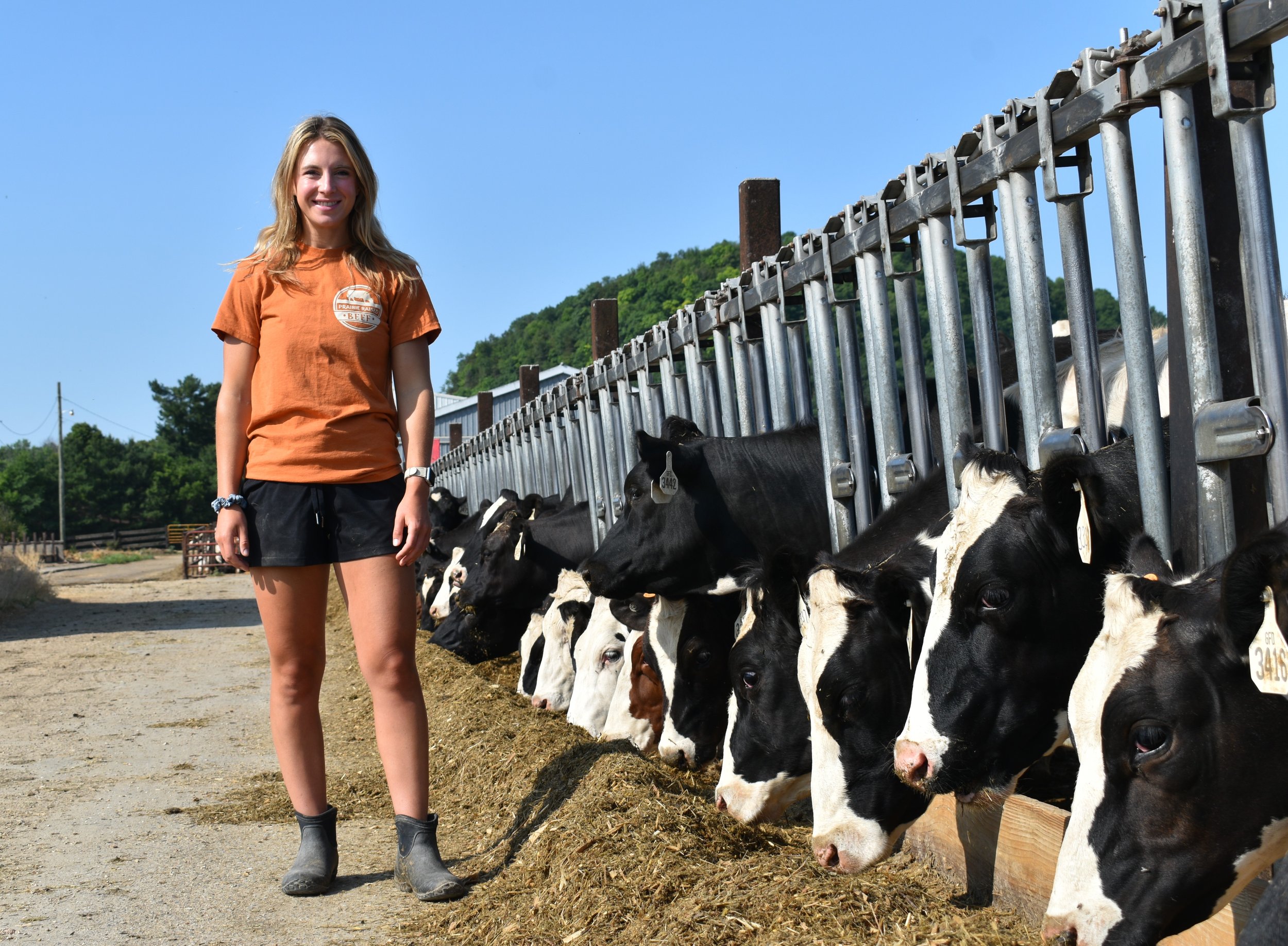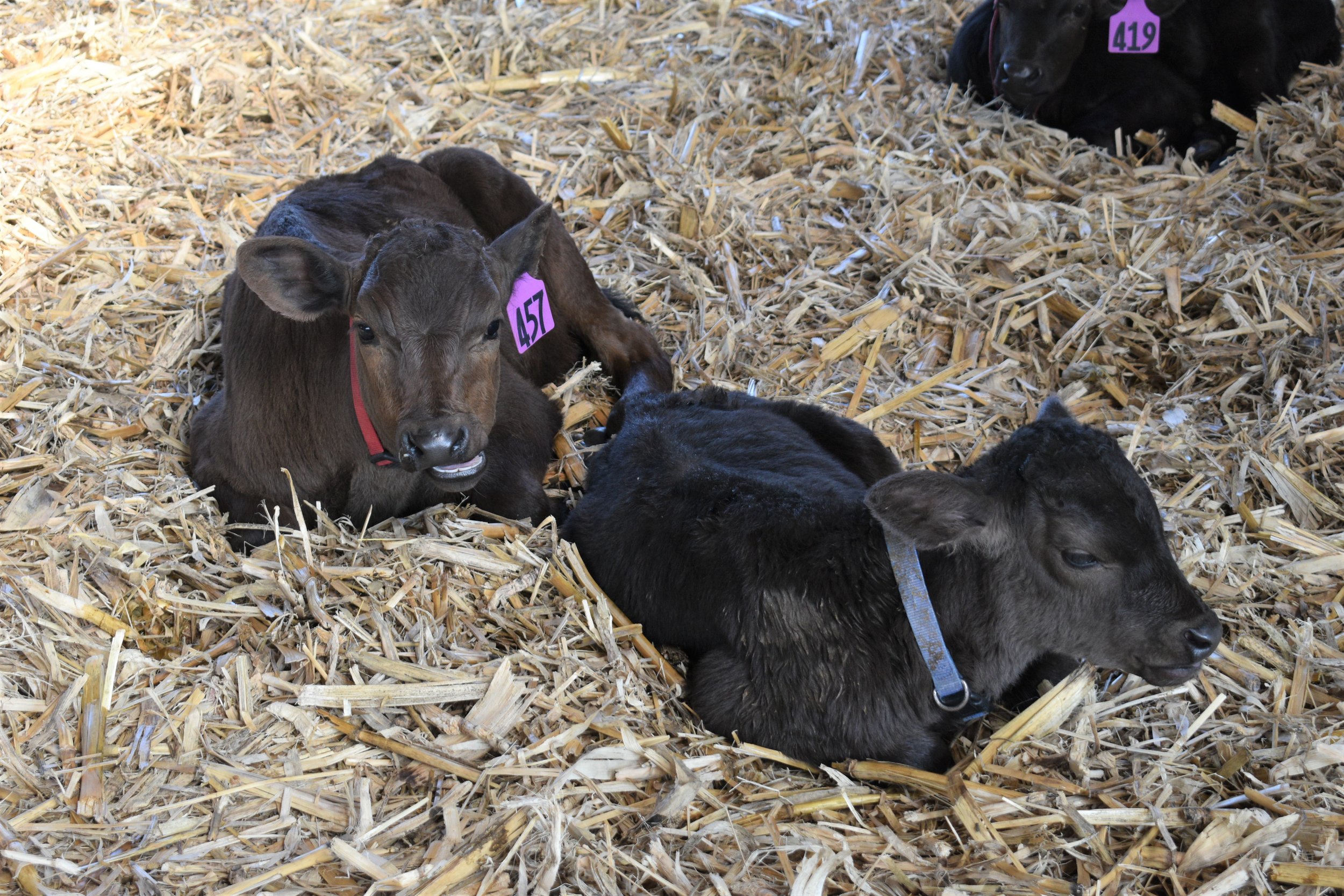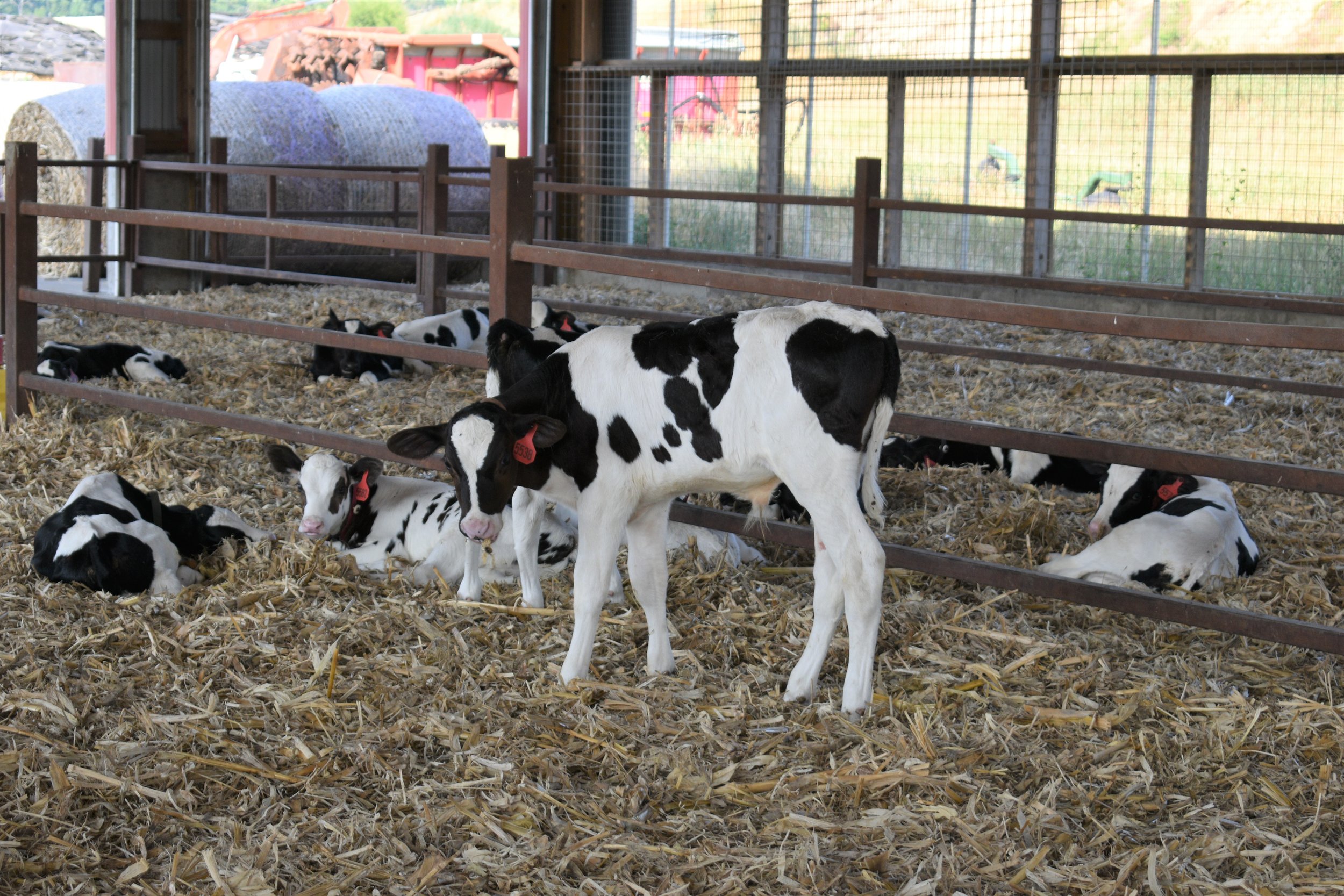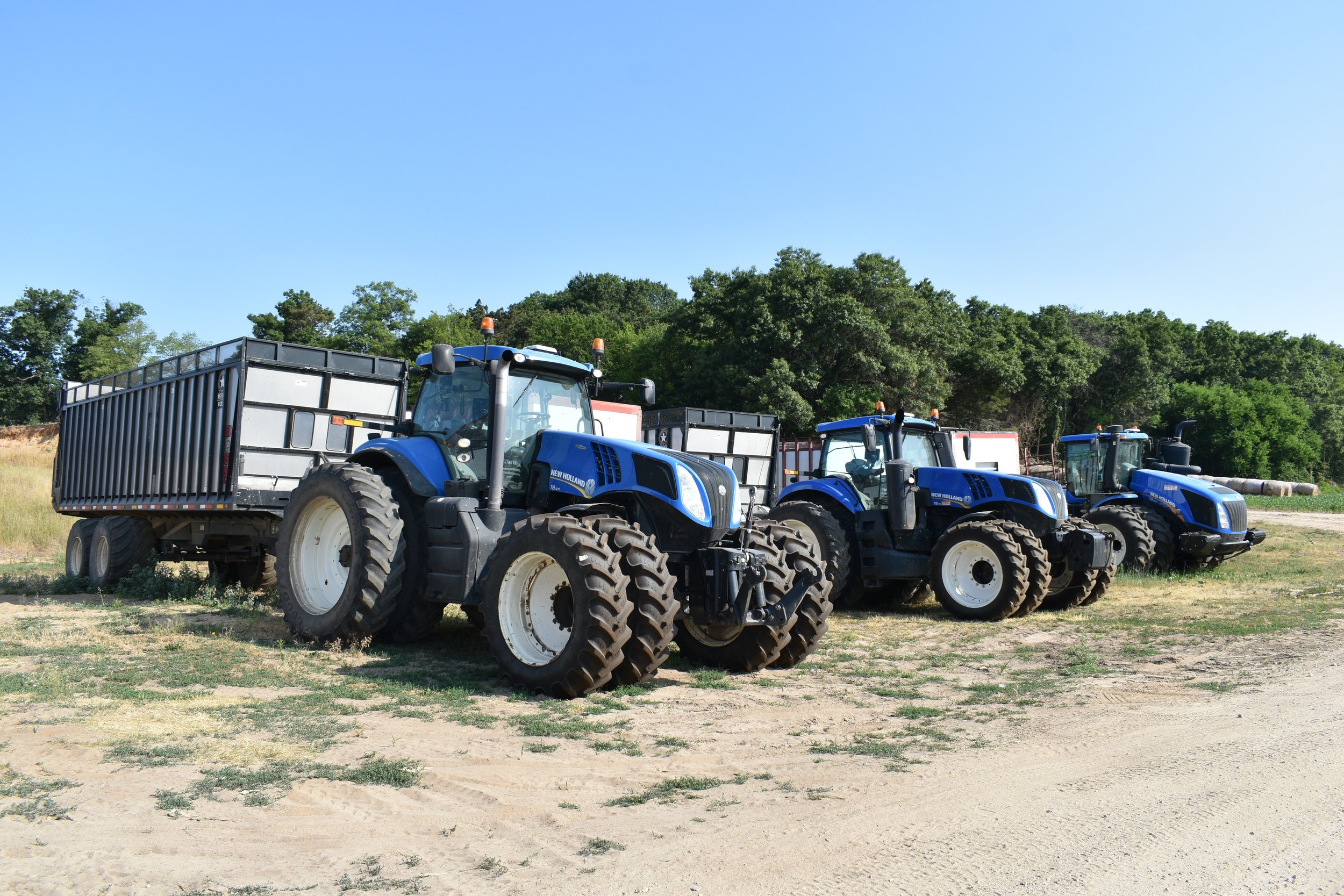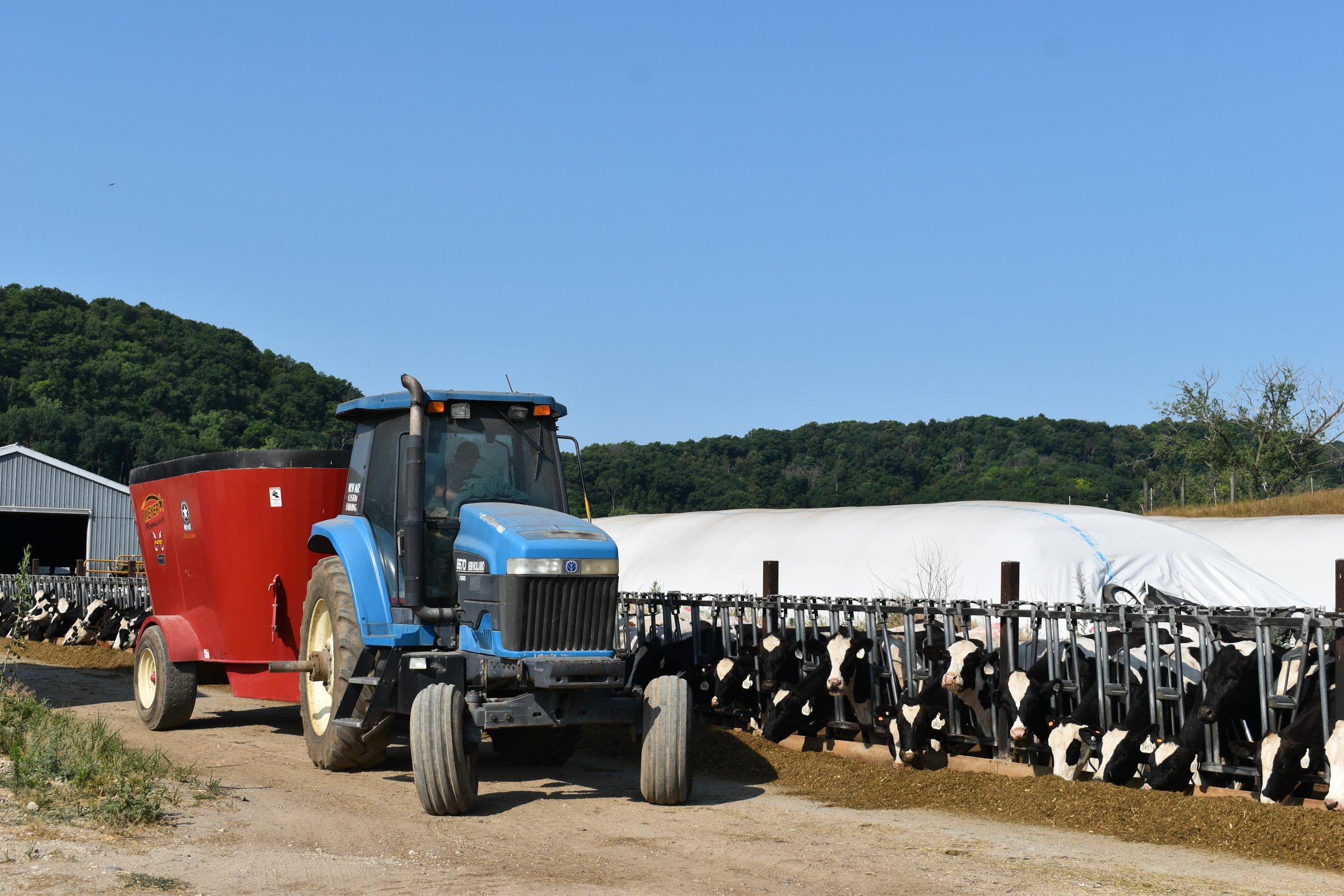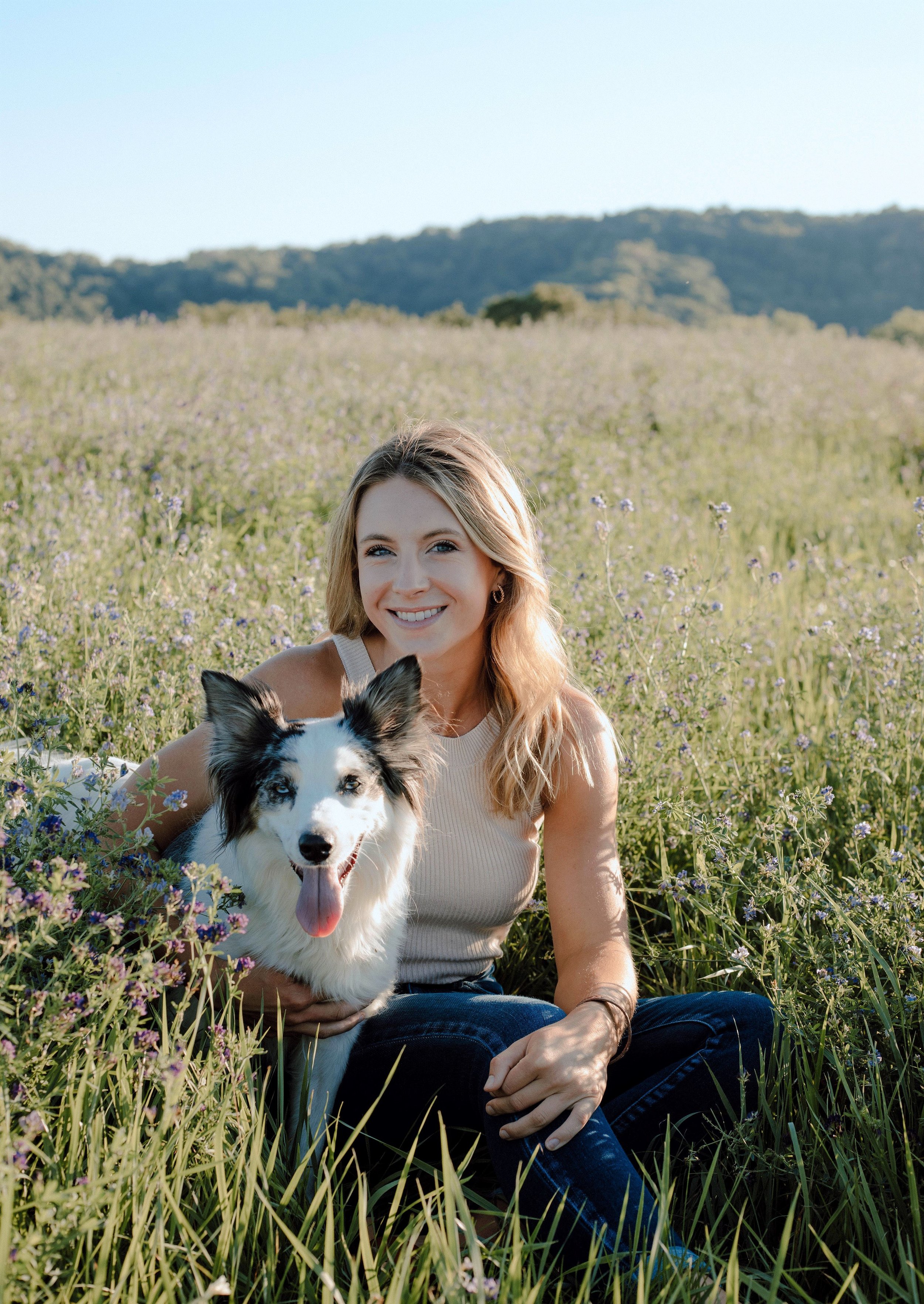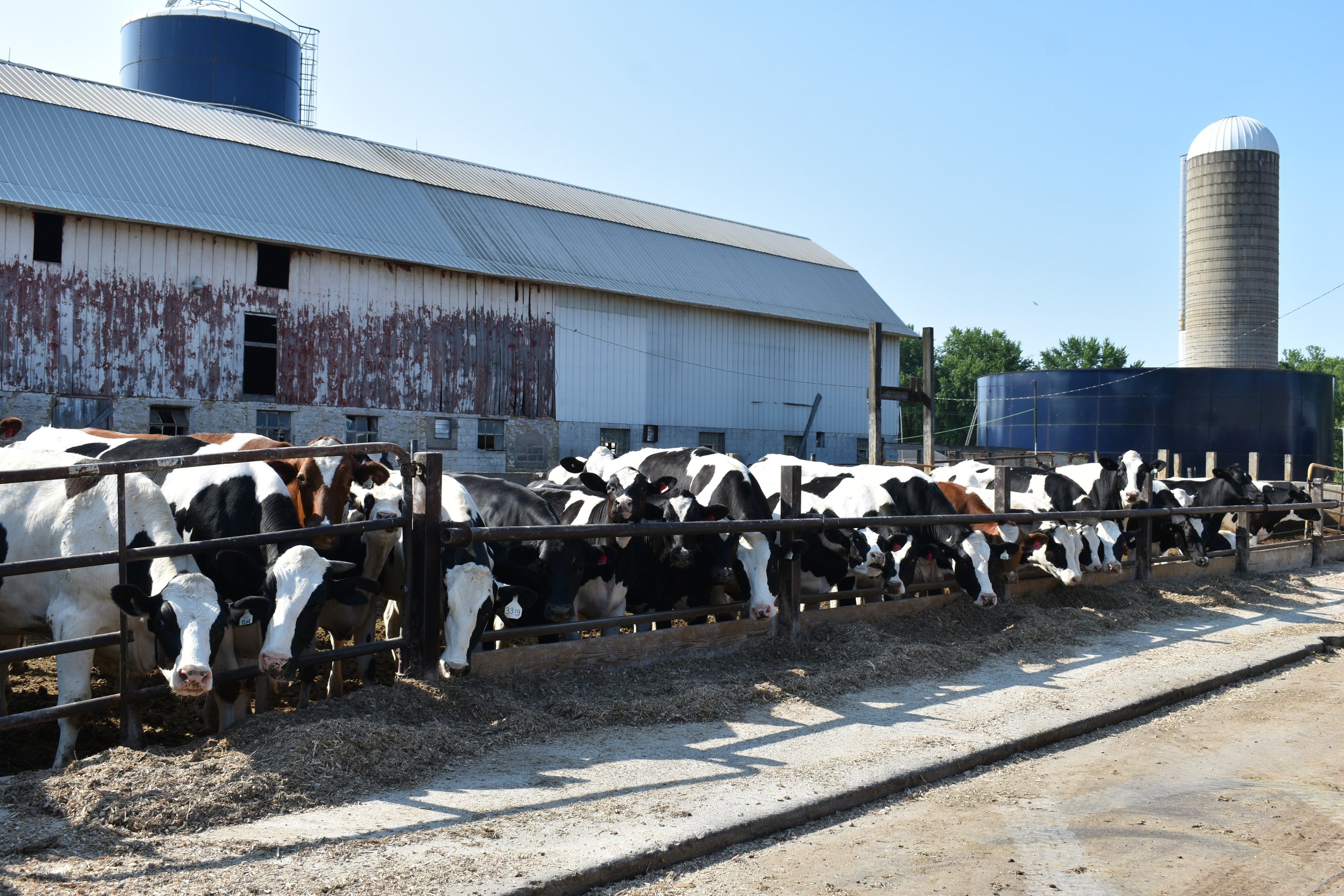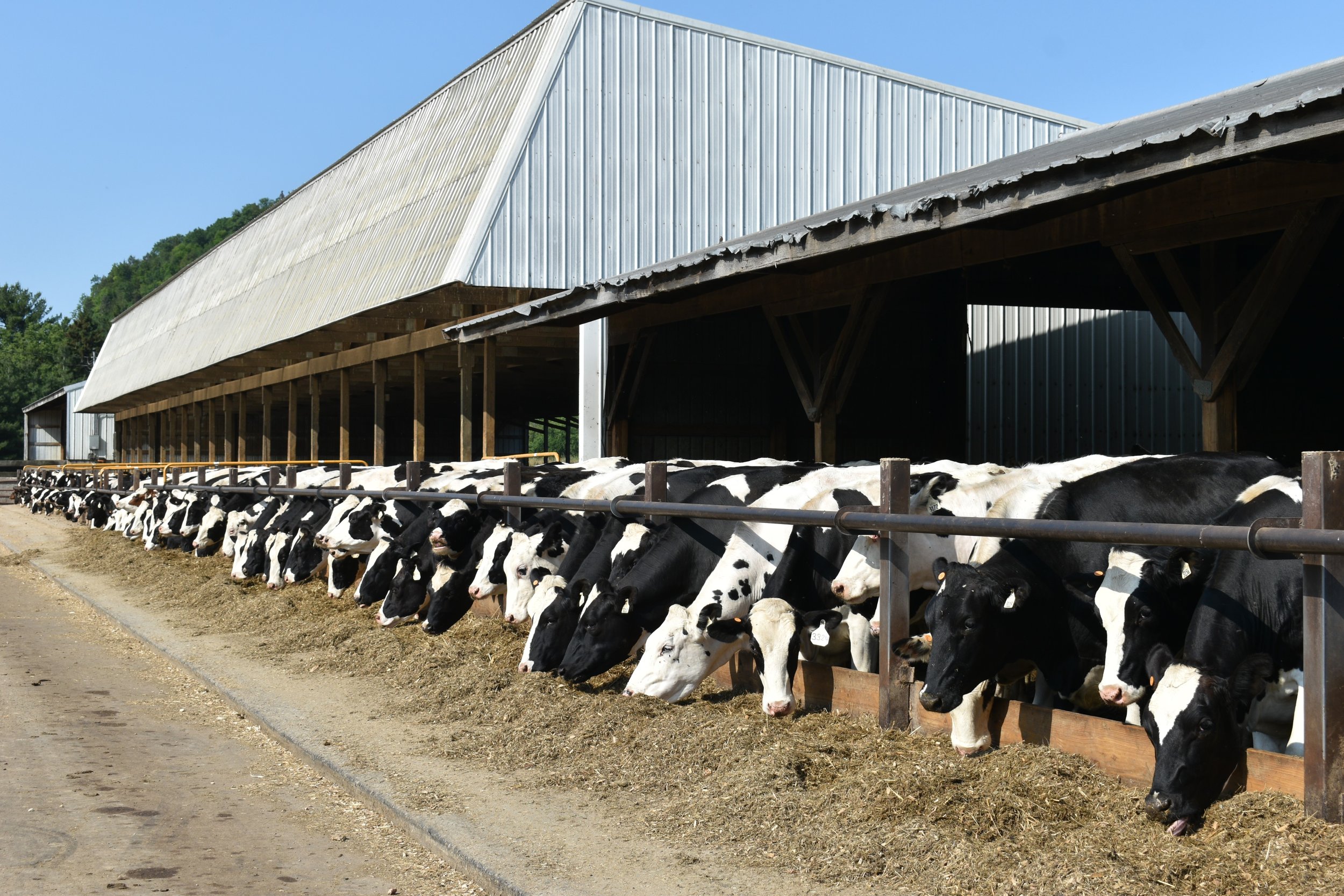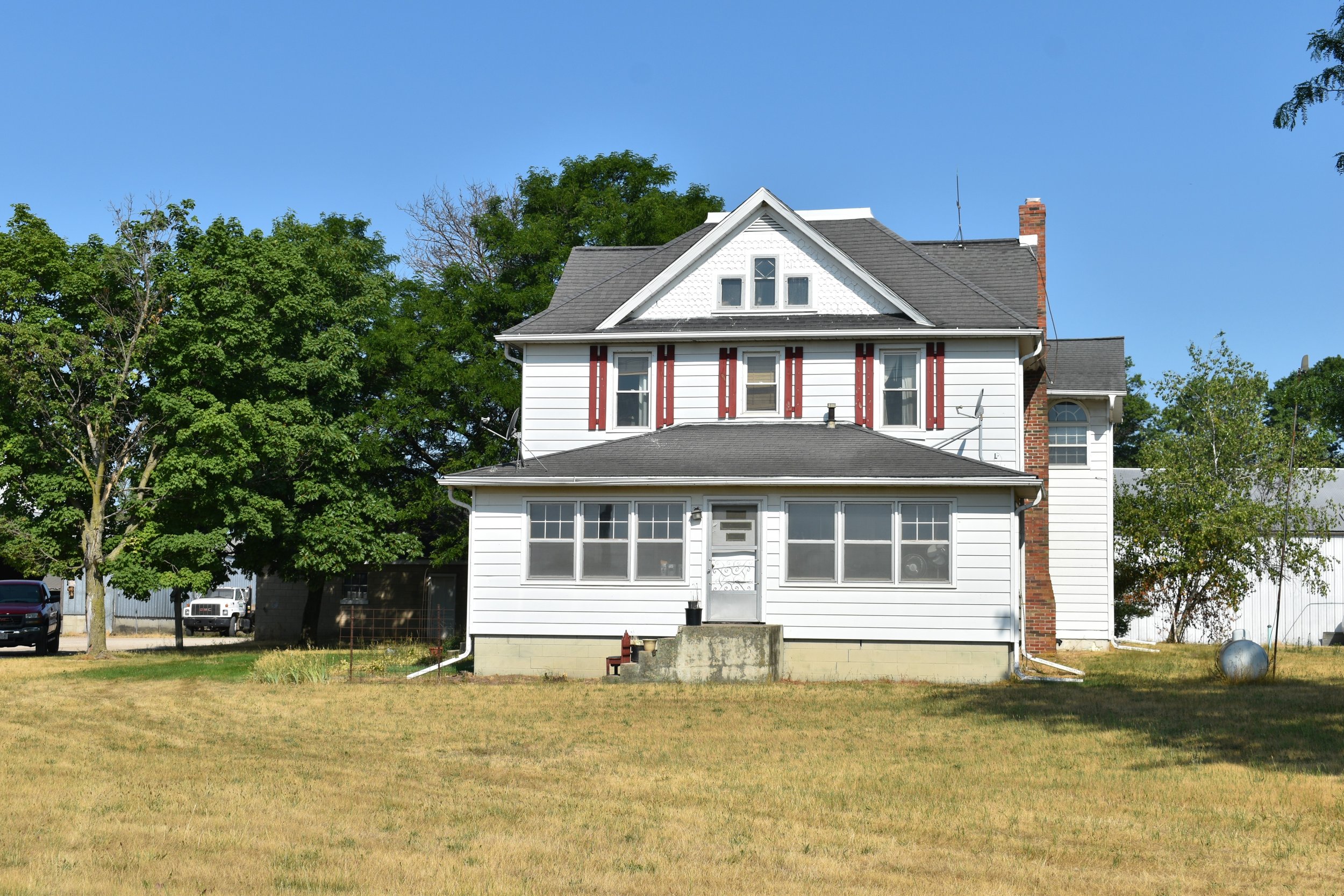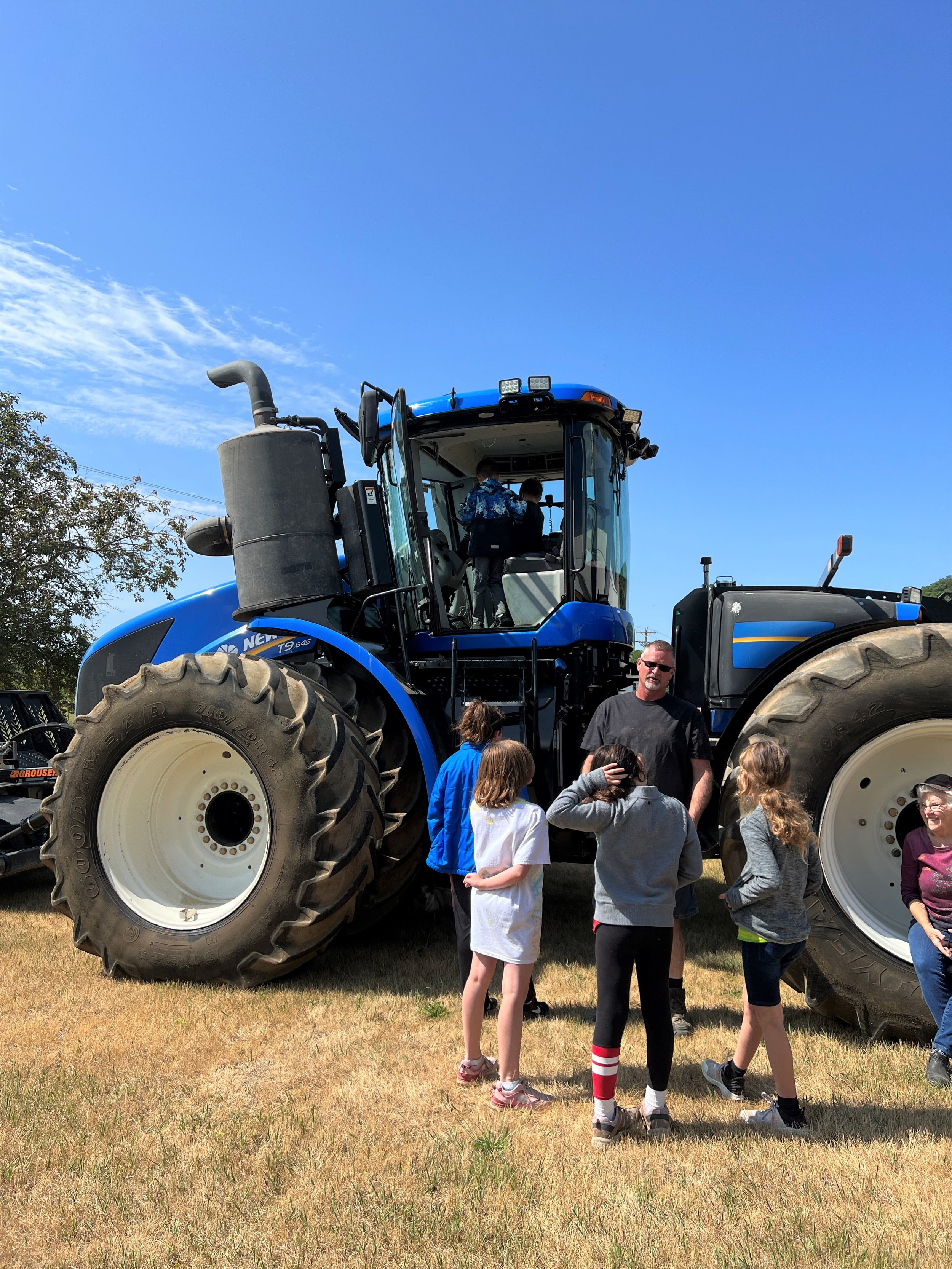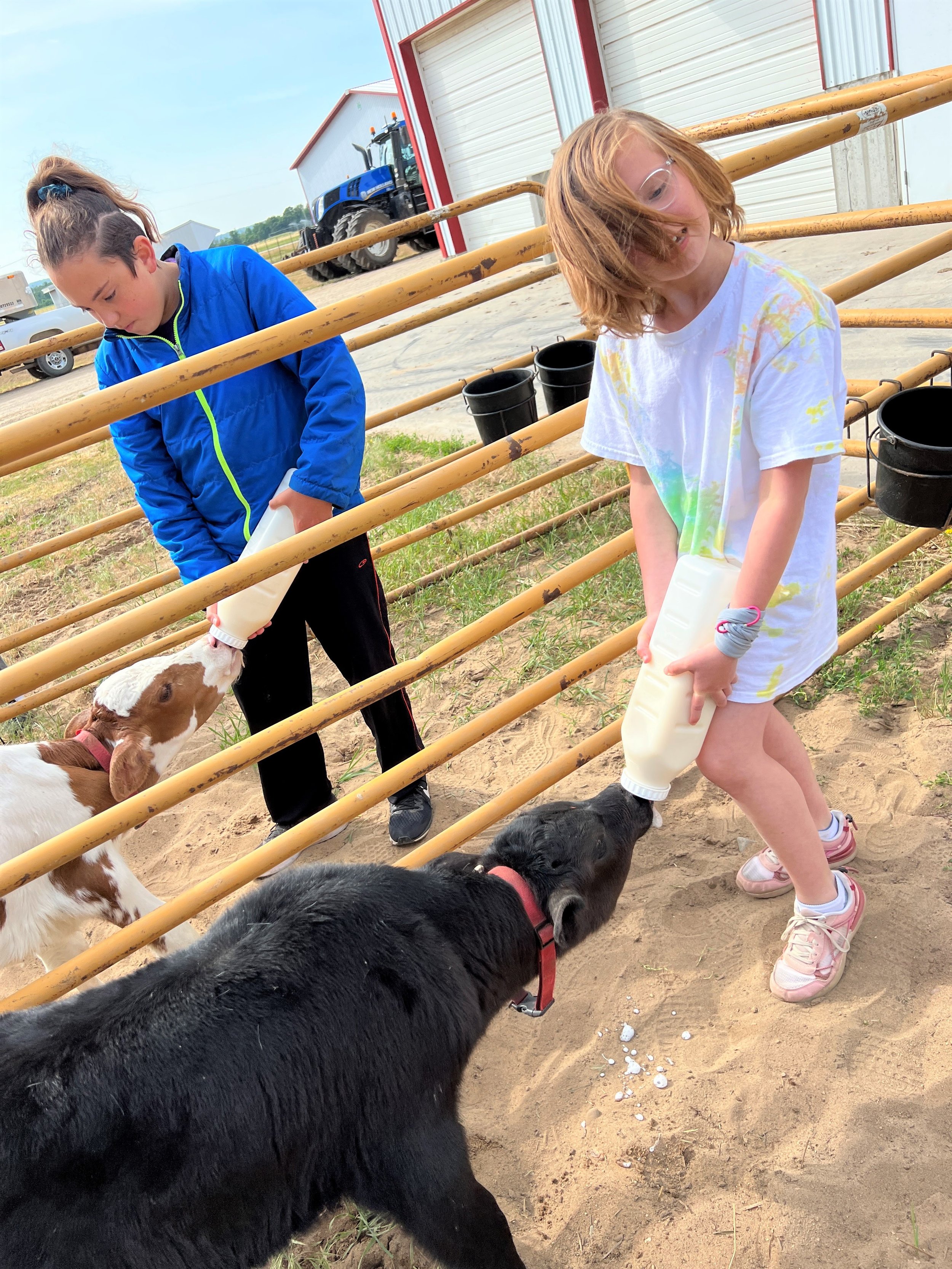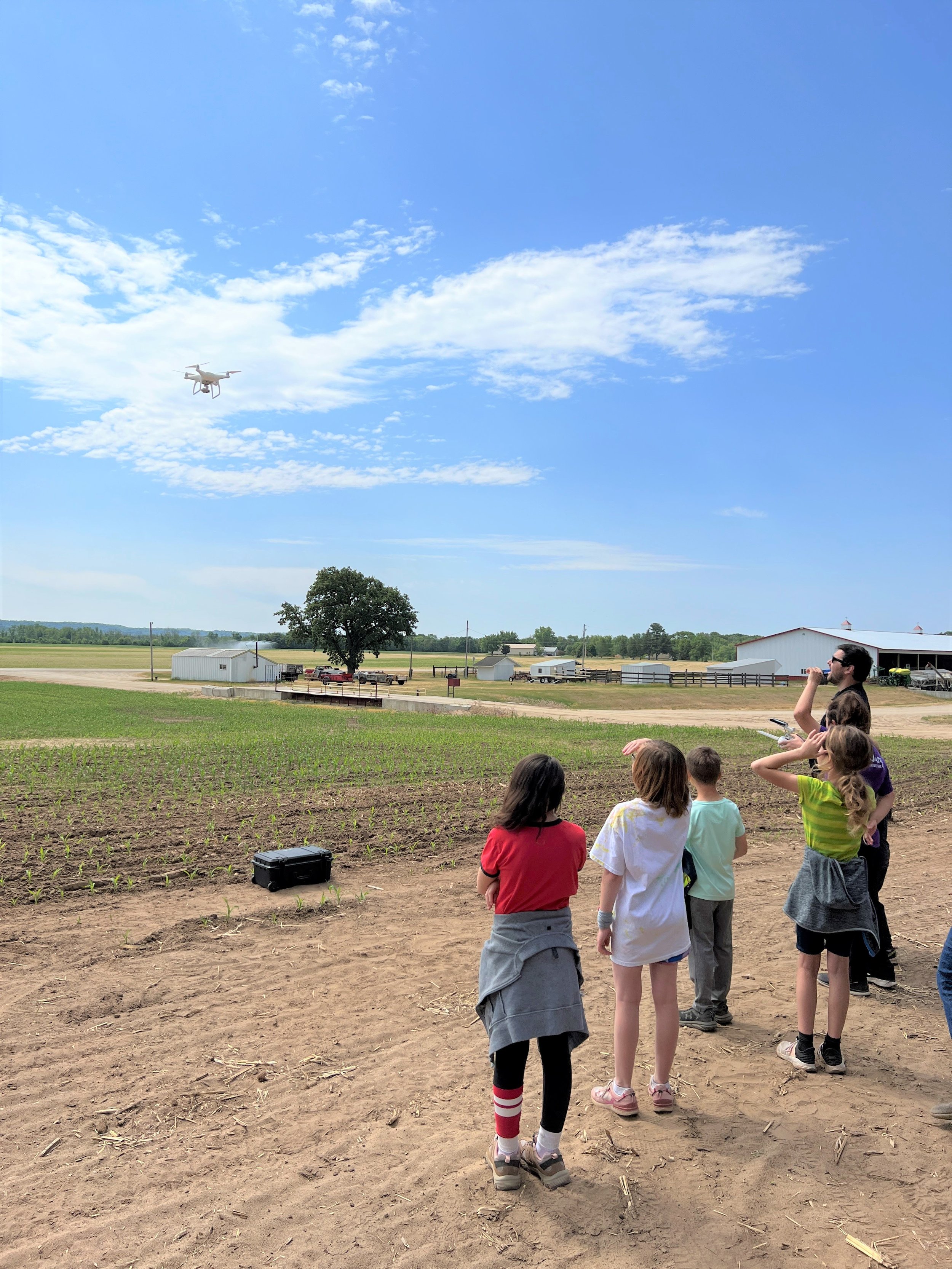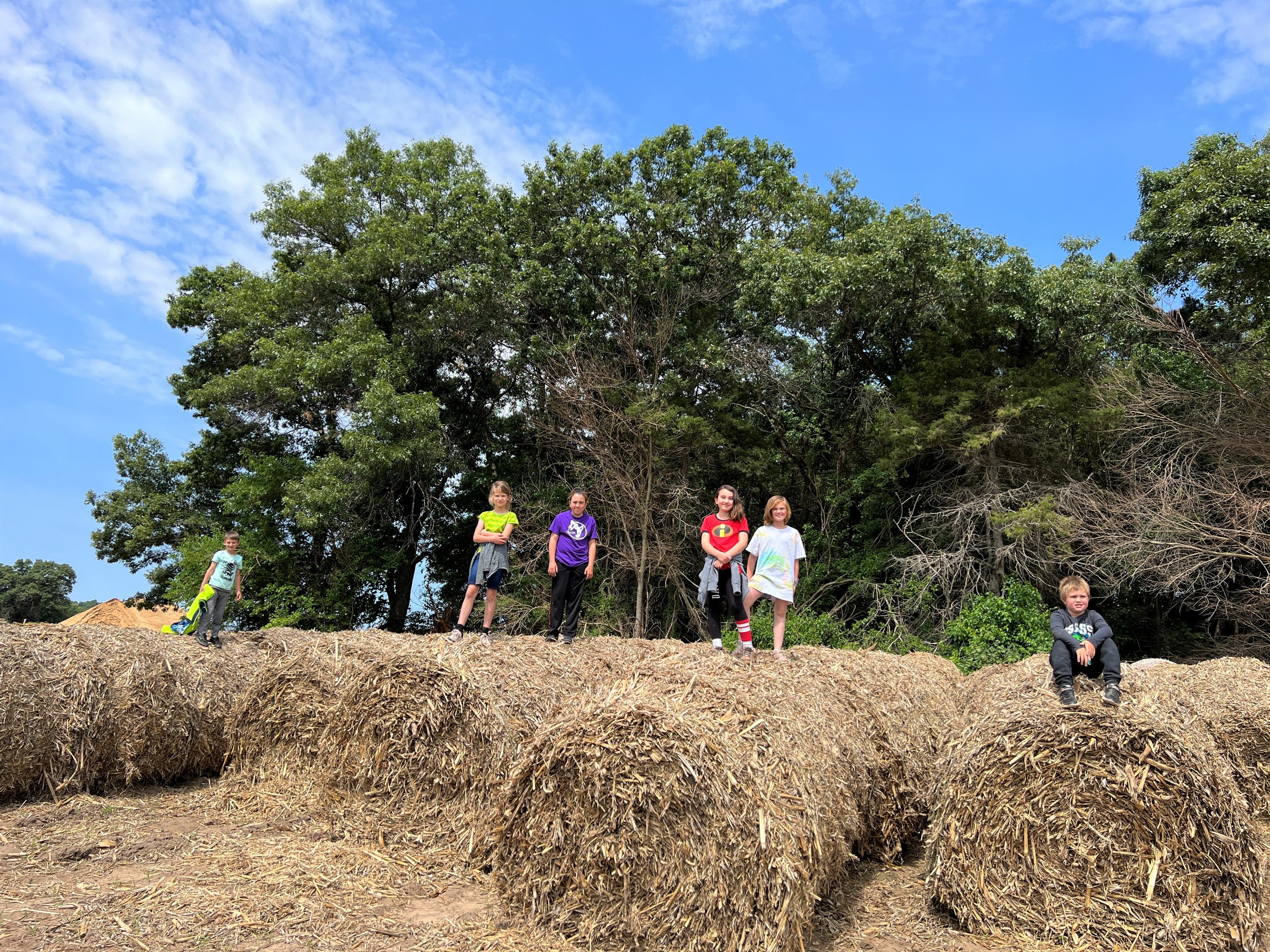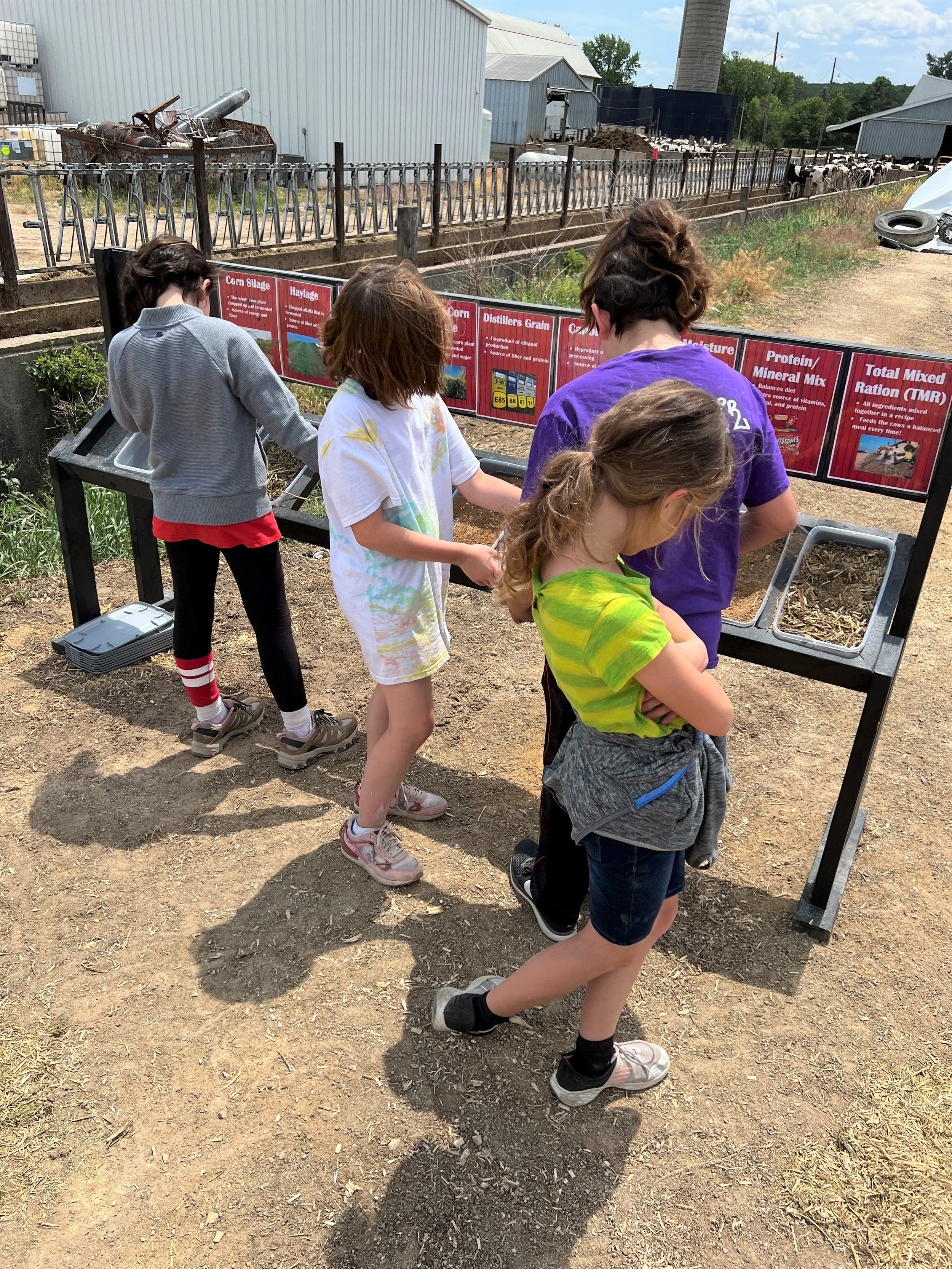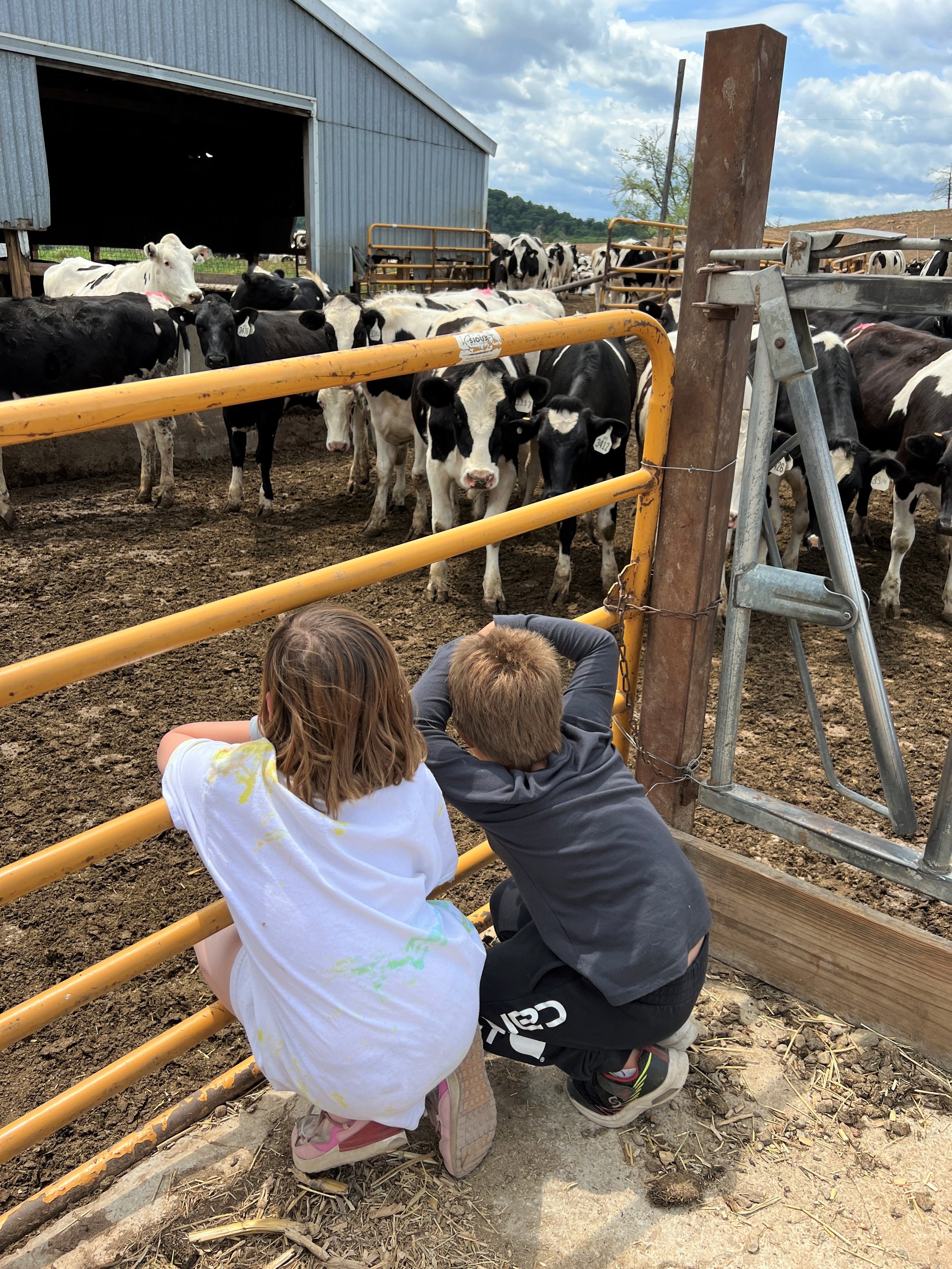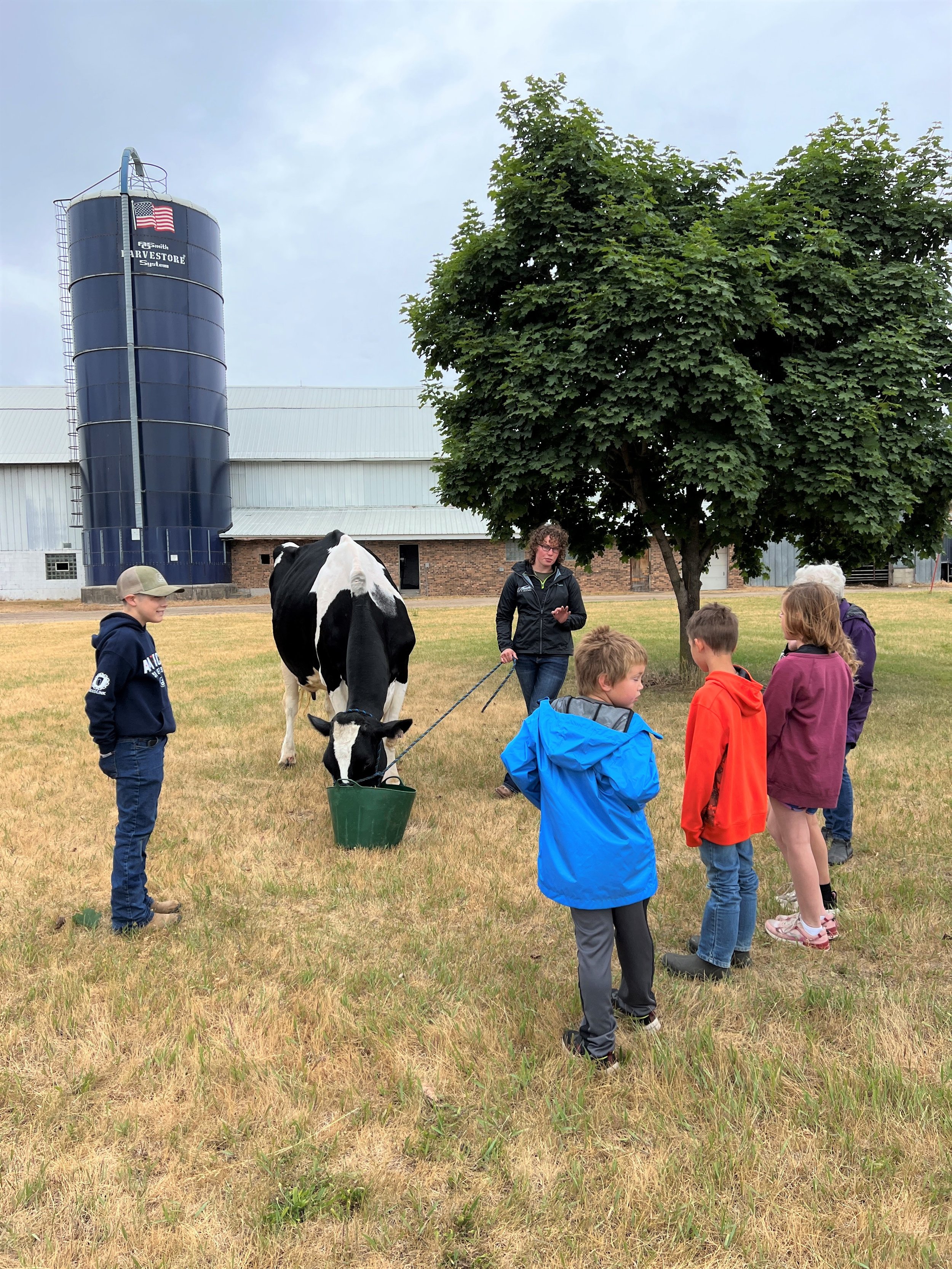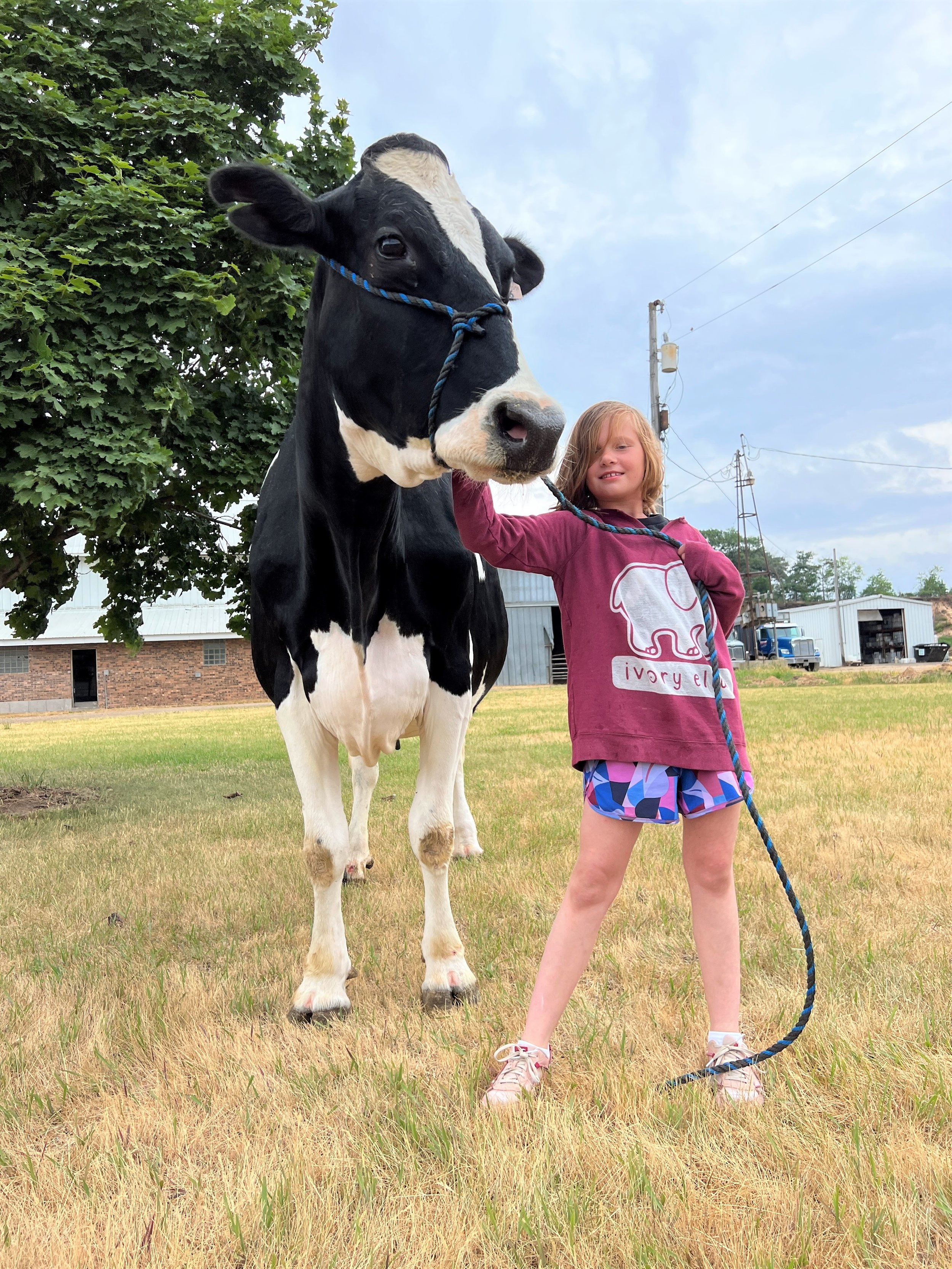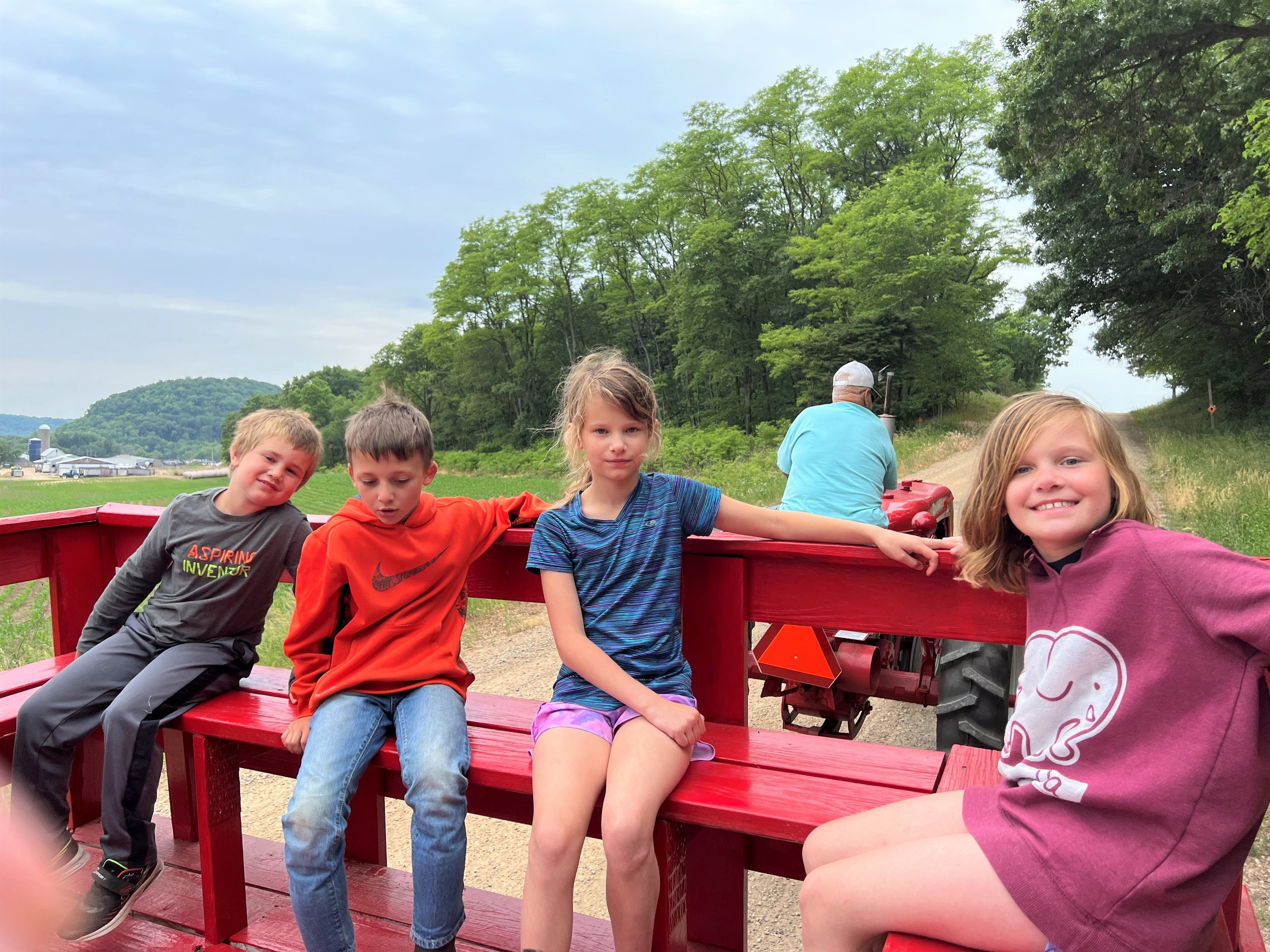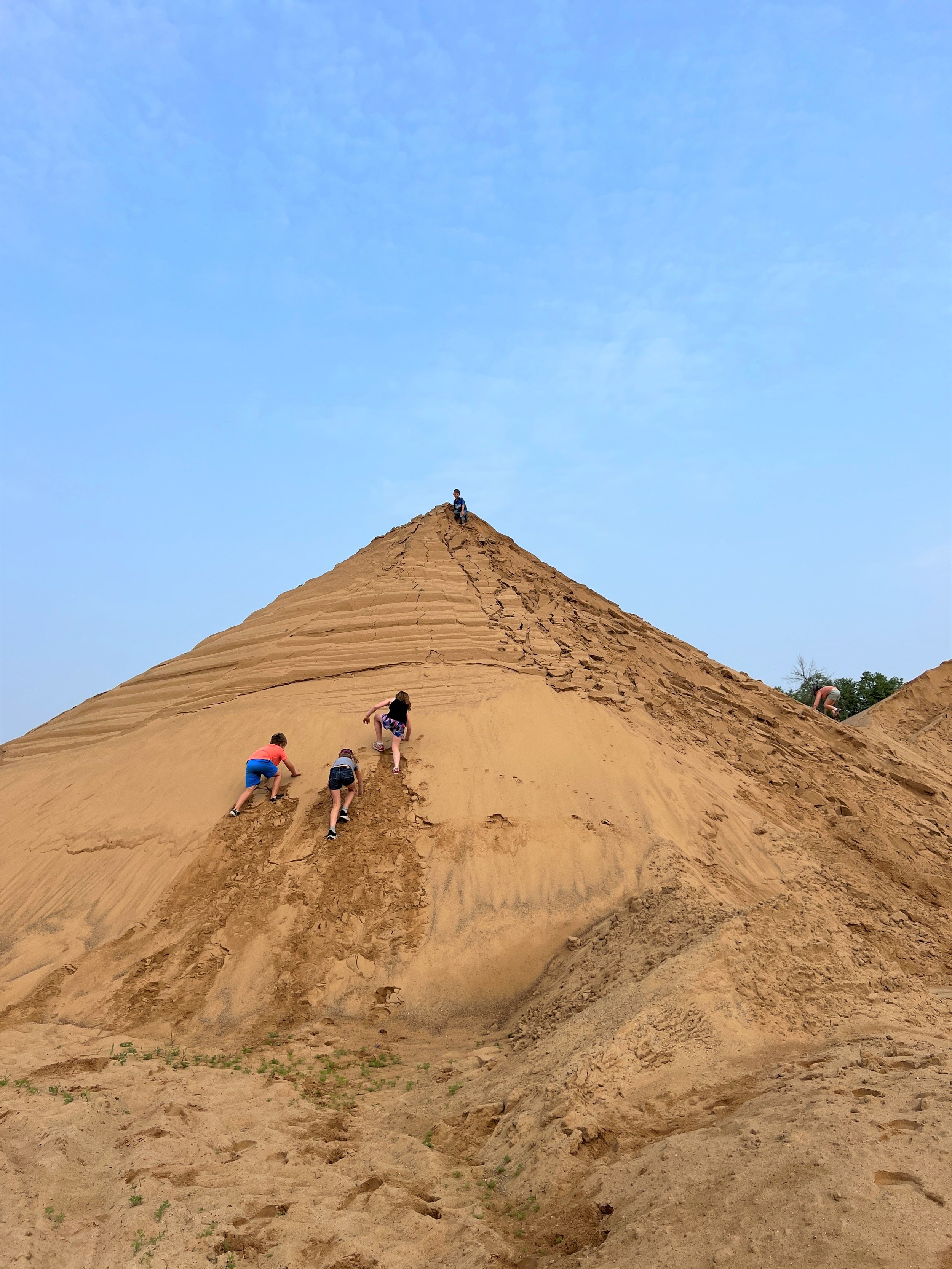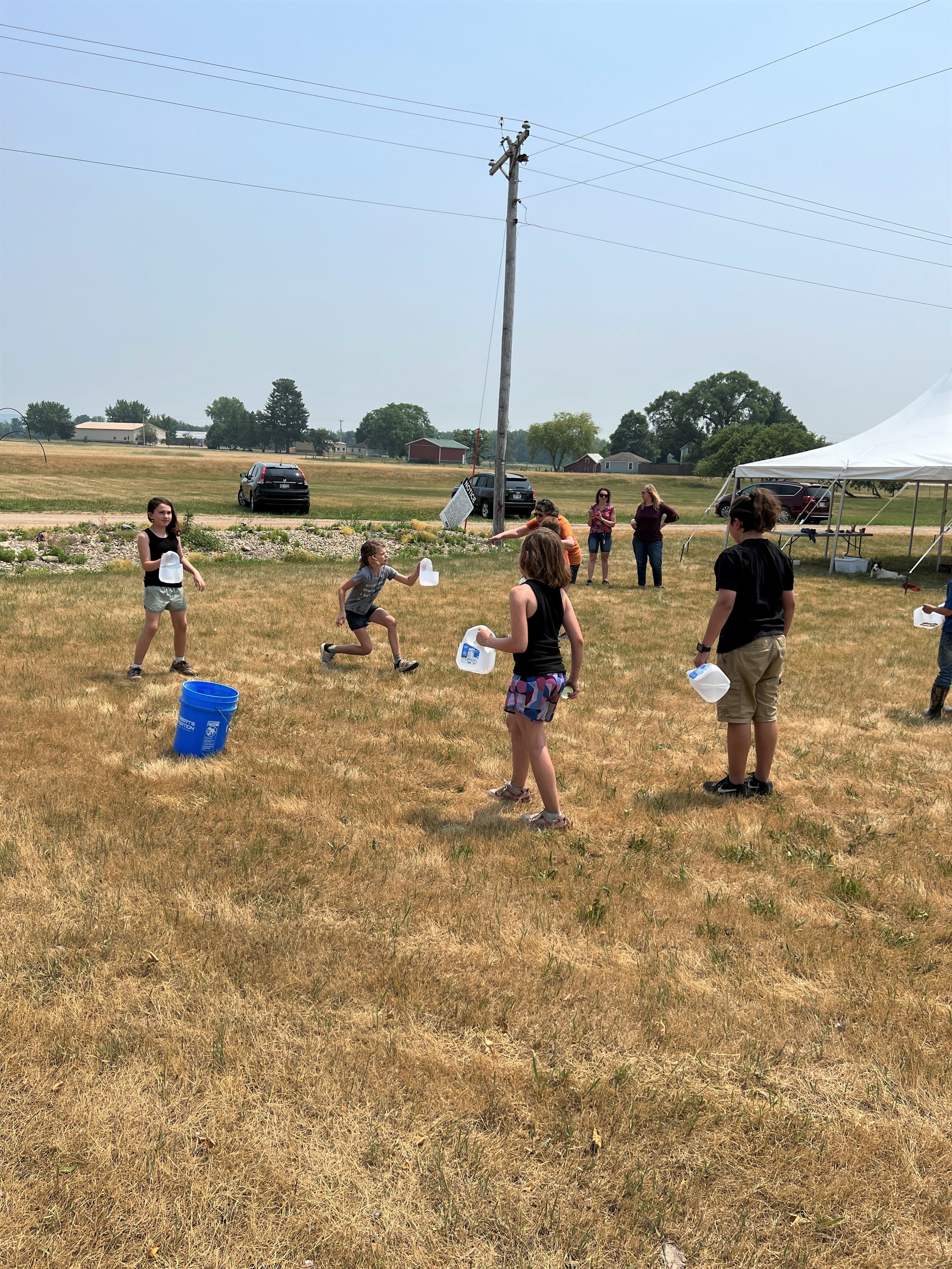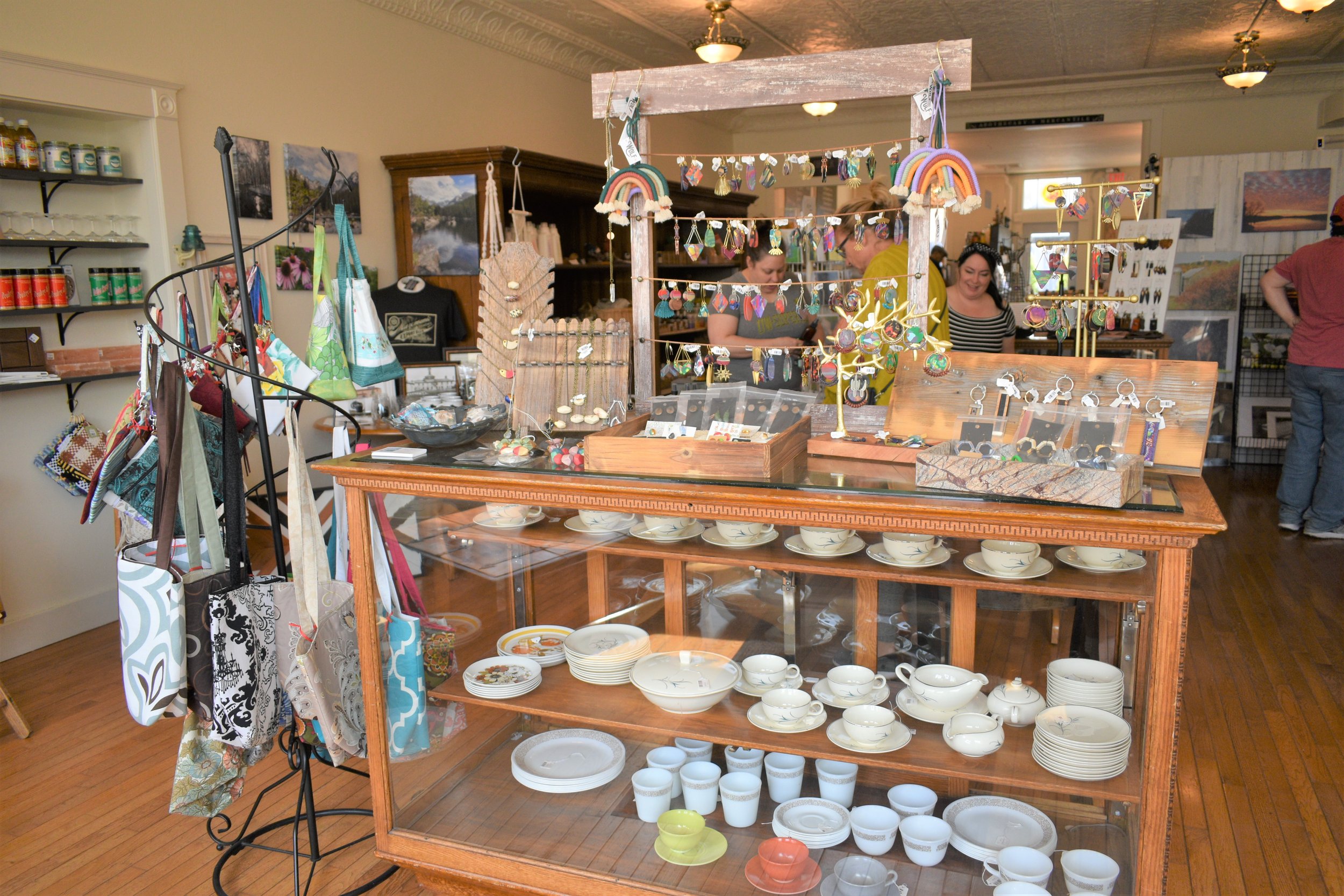Sauk City farm still going strong for 158 years, focuses on direct to consumer
“So, this is my boyfriend's family farm, and his family started it back in 1865,” said Emily Matzke.
A sixth-generation farm in Sauk City, Wisconsin, Emily shared, “this very land that we're sitting on, is the initial plot of land that my boyfriend Avery’s family the Elsings have farmed.”
So, let’s break down a bit of this 158-year history of the farm provided by Emily. Back in 1854, William Elsing, Greg Elsing’s (current owner) great, great grandfather received a pardon from the King of Prussia. The pardon was for an outstanding civic contribution. In 1855, William bought eight acres from a man named Jonah Bell. This land purchase is the earliest recorded at the Sauk County Courthouse.
Adding to the family’s holdings, Greg’s great grandfather Henry Elsing, had received forty acres of land from the federal government in 1865 after his service in the Civil War. Walter Elsing, Greg’s grandfather, was awarded the highest milk production of grade cattle in 1955, for Sauk County. He was the first producer West of the Wisconsin River to go on grade A milk.
Greg’s parents Henry & Diane Elsing farmed the Elsing land until 1994, and now, Greg is the 5th generation that owns and works the farm with his family.
Greg has two sons, Avery and Mason. Both have the interest, passion and drive to ensure the Elsing farm remains a legacy into the future.
Emily jokingly said she kind of “weaseled” her way into the farm being Avery’s girlfriend. But don’t let the term weaseled throw you off. Emily is a University of Wisconsin-Madison graduate holding a bachelor’s degree in Animal Science and Life Science Communication, and no stranger to farming. “I didn't actually grow up in agriculture. My grandparents had a dairy farm. But, just like a lot of farmers, they stopped milking and sold the cows after my grandpa passed away. So, I didn't really have that experience growing up, but I was able to have, like smaller experiences on farms when I was younger. That's why I'm so passionate about agriculture, and why I want to be involved in agriculture.”
The farm, was dairy until 1997. When asked why the family stopped milking, she said there can be many different reasons farmers get out of it. “It was just a matter of what made the most sense, I think economically, and also time management wise. When you're milking cows, you're milking cows morning and night, that takes a lot of time. I think just for a matter of time management and to be able to expand the business and go into different ventures, it just made the most sense. And it's either at that point, a lot of times for efficiencies and to be able to grow your dairy, you have to either build something or change in some way.”
Change they did, in a few different ways. In 1995, Greg and fellow farmer Chris Fehrman decided to start farming together forming New Age Custom Farming LLC, that is operated from both Elsing’s farm and Fehrman’s farm in Prairie du Sac, Wisconsin. The Elsing farm is sort of a conglomerate. “There are different businesses that are part of it. So, there's New Age Custom Farming and New Age Grain, they work with dairies in the area to harvest or feed and stuff. Then another dairy Grayson's, just up the road from our farm, we take care of their manure management as well and so their manure goes on to our fields. In the fall, we produce corn silage. So, a lot of nutrient management that way. We still play an important role in the dairy industry. We do just about everything but milk the cows,” Emily said with a smile.
“So, when I say we do everything but milk the cows, we buy the bull calves from a local dairy farm and that's what we raise for beef. There are 750 head here on the farm, but that's all beef. We customize heifers for a dairy farm that we buy the bull calves from. We get them a little bit after they're weaned and raise them up until they're about to give birth. The beef cattle we get them as full calves and then we raise them until they're about 400 to 500 pounds. Some we keep back for our program that we finish out and then sell direct to consumer and then the rest, because we don't have a large enough market to sell all of them direct to consumer yet, we sell out to other farmers who also raise them as feeder calves.”
Although the family has focused on raising beef cattle, Wagyu and Holstein beef cross and custom raised heifers, they also grow crops of corn, soybeans and hay.
Although a very hands-on farming woman, Emily plays a vital role in not only tending to calves, but the family’s direct to consumer business, Prairie Raised Beef established in 2022. The name, an ode to the indigenous prairies that the area was and still is known for.
“We do beef shares. If people are interested in a quarter or half or even a whole, people can contact me through our website. We also have retail cuts, because I know that not everyone might not have a chest freezer or space to store a lot of meat.” Emily pointed out the retail cuts are geared towards people that want to support local meat and get local products from different farmers, but that may not want to purchase large quantities of meat.
Emily uses her impressive social media talent to man the marketing aspect of Prairie Raised Beef, insuring they reach a wide base of customers. Prairie Raised Beef’s website and Facebook page also links customers to Emily’s farm blog, photos, videos, and her Instagram page.
The future of the farm? Well, Emily has a handle on that as well, in an educational way. “We just started hosting some farm events this summer, some farm camps, and I really enjoy doing that. I think we’ll be able to do more of those next summer and in the future, including some other on-farm activities.” She said her mindset is to not just provide activities for kids, but for adults too. “Whenever I post about the kids’ camp, there's always adults saying, ‘Oh, I wish I could come to this’. So just to be able to provide opportunities for people who might not have the chance to be on a farm or experienced agriculture firsthand, to be able to come out see calves and spend time outside. I think like for the kids’ camp, the kids’ most exciting thing, was playing on the tractors. They like were climbing on them like a jungle gym, and then we have some round bales, so they're climbing on those too. They love to just do that. We want to give them the wide-open space to run around and be kids, basically.”
Emily hopes the camps will be a way to spark kids’ interest in agriculture. One in ten jobs in Wisconsin are related to agriculture, and she doesn’t feel a lot of people realize that. “The agriculture industry is in constant need of a new workforce. Even if kids don't go into agriculture, I just want them know it's an opportunity for them, but I also want them to have an understanding of where their food comes from. Even though I don't have a strong history in agriculture, I'm still able to be here and be involved in agriculture.”
Emily stressed that her tag line on the Prairie Raised Beef website is “From your farmer friends”, and reiterated that they believe in caring for the land, animals and community. “I want people to know, that even though you might not know a farmer, we’re your farmer friends, we’re your resource if you have question about agriculture, questions about beef, stuff like that.”
To learn more about Prairie Raised Beef direct to consumer products, the Kids Farm Camp, and what’s going on daily at the farm, visit their Facebook page, website, and Emily’s Instagram page.
